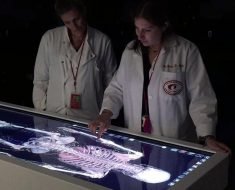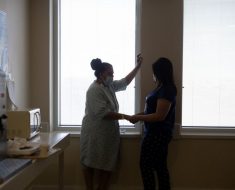Hiring physicians and nurses can feel like an antiquated process: Combine a lot of paper with busy hiring managers and it can take weeks for a job candidate to be screened, have their references checked and be credentialed.
Ann & Robert Lurie Children's Hospital of Chicago was feeling the crunch and turned to IT four years ago to streamline the hiring process. It began using a cloud-based, data-driven reference checking solution that processes more than 100,000 children's hospital job candidates a month, the company said.
Lurie Children's Hospital began working with Kristin Bowen, senior director of client relations at Skill Survey, who offers onsite talent acquisition training and individual support for additional team members.
"As a result of the demonstration and training sessions, there was positive feedback and tremendous learning for most," said Bowen.
"This significant time savings positively impacted our time-to-fill metric and was well received from a training perspective by the recruiters, hiring leaders and prospective new hires."
Valarie Amos, RN, Lurie Children's Hospital
Valarie Amos, director of talent acquisition at Lurie Children's Hospital said that it previously took an average of seven days to complete a reference check and now it takes three. "This positively impacted our time-to-fill metric and was well received from a training perspective by the recruiters, hiring leaders and prospective new hires," Amos added.
Reference checking is a critical process in healthcare. Other vendors in the automated reference checking market include First Advantage and Arden.
So how does the automated system work at Lurie Children's Hospital? Once a candidate completes their online application, is interviewed and selected as the finalist, the reference check process begins.
Based on the job code/title, the survey is selected by the recruiter and a notification is sent to the new hire. The new hire completes the online form, inputting five reference contacts. Once the contacts complete the references, the results are formulated and submitted back to the recruiter's inbox for review.
"To date, we have entered nearly 4,000 candidates with nearly a 90 percent completion rate within three days, from the time the candidate enters their reference information to completion," Amos said.
The scoring aspect of the process is based on the vast amount of reference information SkillSurvey has amassed over the years and how the vendor uses that information to compare candidates.
Measurement experts agree: A raw score is of little general significance until it is compared to the scores obtained by members of some standardized group, said Ray Bixler, CEO of SkillSurvey.
"Our system compares the candidate's ratings against a large sample of those who have applied for the same or a similar position, as evidenced by the survey used to reference check the candidate," Bixler said.
When an employer opts to include normative data, feedback on each competency and cluster area will display a percentile that indicates where the candidate's ratings fall when compared to others within the relevant group.
If the end user enables the option to compare the candidate against others in the relevant norm group, the candidate's numeric ratings will be shown as a percentile.
So if a candidate's numeric rating falls at the 43rd percentile, for instance, that means 43 percent of all candidates in the group had lower numeric ratings than this particular candidate and 67 percent of all candidates had higher numeric ratings.
During a hiring process, once all of the references' feedback is received, it is instantly available for a recruiter to run a report. The reports consist of the average rating for each behavioral survey question, the average rating for six behavioral competency clusters, a breakout of the feedback by managers and co-workers, how many references responded and when, and a summary of the written comments provided by the references.
Twitter: @SiwickiHealthIT
Email the writer: [email protected]
Source: Read Full Article






